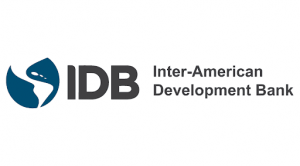Failing to conclude 2020 elections prevents adequate fiscal response to COVID-19 crisis – IDB
According to the Inter-American Development Bank (IDB), Guyana faces several constraints when it comes to adequately addressing the impending health crises resulting from the novel coronavirus. But the primary issue of concern for the financial institution is the ongoing political dispute over the General and Regional Elections which were held on March 2, last. According to the bank, this issue essentially hinders the design and implementation of an adequate fiscal policy response that is needed during this time.
With Parliament currently dissolved, the bank asserted that no legislation can be passed. It said that this situation is aggravated by the legal dispute over the elections while pointing out that this affects any potential fiscal stimulus supporting the health sector or social policy providing relief to the vulnerable.
It was also keen to note that the electoral woes also affect access to the recently created Natural Resource Fund (NRF) which could also provide support through the budget. The NRF has strict withdrawal rules in place and accounts for the possibility of emergency financing in the event of a major natural disaster.
Despite these challenges, the bank recalled that the government announced making funds available to the Ministry of Health, potentially to strengthen its preparedness in terms of testing, facilities, intensive care capacity, and respirators.
Along with that, the bank said other policies that may be important to consider include expanding cash transfer programmes, especially if social distancing policies are strengthened and household incomes fall, which could contribute to reducing the risk of social unrest. It said that similar support for small and medium scale businesses could be considered.
The IDB said that the Bank of Guyana has indicated that its capacity to respond through reserve requirements or policy rates is minimal or none because of the financial sector’s generally high level of liquidity and little need to borrow. It also noted that the main policy response from the Bank of Guyana has been to ask financial institutions to provide flexibility in the form of lower interest rates, deferring loan payments, as well as promoting measures to reduce in – person transactions.
Several banks have adopted these measures including reduced opening hours and deferring loan repayments for a period of up to six months on a case – by – case basis. The IDB recommended nonetheless that supporting liquidity in the deteriorating market conditions will be key.
The IDB also noted that the main recommendation for Guyana has been proposed by the World Health Organization, which is to urgently introduce more stringent measures limiting people’s movement in urban areas. The IDB said that up to now, this has been relatively unaltered.






















